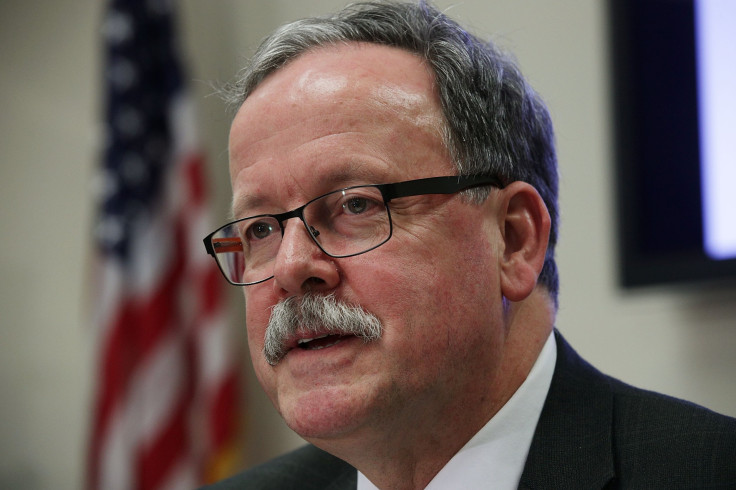Will The Congressional Budget Office Say How Many People Could Lose Health Insurance?

President Donald Trump said an Obamacare replacement plan would provide "insurance for everybody," days before taking office in January. Now his party has produced a House bill to repeal and replace Obamacare, and members of both parties are waiting for the nonpartisan Congressional Budget Office to release its analysis of the legislation, called the American Health Care Act. The CBO's analysis is expected to include estimates of who will lose coverage, who will gain it and how much the bill will cost taxpayers. The results, and the political whirlwind that is sure to follow, could come as early as Monday.
Congressional Budget Office expected to release costs, coverage estimates of GOP health care bill: https://t.co/RhMgMltfAO pic.twitter.com/59I7w8VyAI
— ABC News (@ABC) March 13, 2017
Congress established the Congressional Budget Office in 1974 in response to President Richard Nixon's refusal to spend money Congress had appropriated. The office was designed to serve as a nonpartisan team of wonks and researchers who could break down the budget and costs of legislation for Congress and the American people. The office's website says it employs 235 staff members, including "economists or public policy analysts with advanced degrees," as well as support staff working across a "flat organizational structure."
The CBO director is selected by Congress. The current director is Keith Hall, a Republican and former Bush administration economist who was appointed in 2015. Politico noted at the time that Hall is a "critic of the Affordable Care Act who shares Republican skepticism of government spending and regulation."
But Hall's political leanings probably won't impact the CBO's analysis of the American Health Care Act. The office's number-crunching abilities are respected precisely because of its strict adherence to apoliticism. It's that history of neutrality that makes the office's report on the GOP healthcare plan so important — it will help cut through the rhetoric and claims made by Republicans and Democrats, and provide objective estimates about cost and coverage that will serve as a starting point for the coming healthcare debate.
That's also why some Republicans may be trying to undermine the CBO before it delivers its analysis, which although nonpartisan, isn't always correct.
“If you're looking to the CBO for accuracy, you're looking in the wrong place,” White House press secretary Sean Spicer said last week. “They were way, way off last time in every aspect of how they scored and projected Obamacare.”
Trump's team will try to discredit the CBO assessment of its health care bill this week.
— Brian Klaas (@brianklaas) March 13, 2017
Here are 13x he used CBO estimates to attack Obama pic.twitter.com/bAEyxubnXv
As Politifact noted, in 2010 the CBO projected that 21 million people would purchase health insurance coverage through the Obamacare exchanges by 2016 while the real number was 11.5 million. The CBO also said the number of uninsured Americans would shrink by 30 million, but in 2016, the CBO reduced that estimate to 22 million.
However, the Commonwealth Fund, a private foundation dedicated to improving the healthcare system, evaluated the CBO's Obamacare analysis and found that "the CBO’s projections were closer to realized experience than were those of many other prominent forecasters." So while the CBO might not be perfect, it very well could be the best tool for evaluating the American Health Care Act, and, perhaps most importantly, how many people could lose coverage if the bill is passed. After all, the bill's own authors don't seem to have any idea what that number could be.
"I can’t answer that question. It’s up to people," House Speaker Paul Ryan said Sunday when asked on CBS' "Face The Nation" how many people would lose health insurance. "People are going to do what they want to do with their lives because we believe in individual freedom in this country."
© Copyright IBTimes 2025. All rights reserved.






















